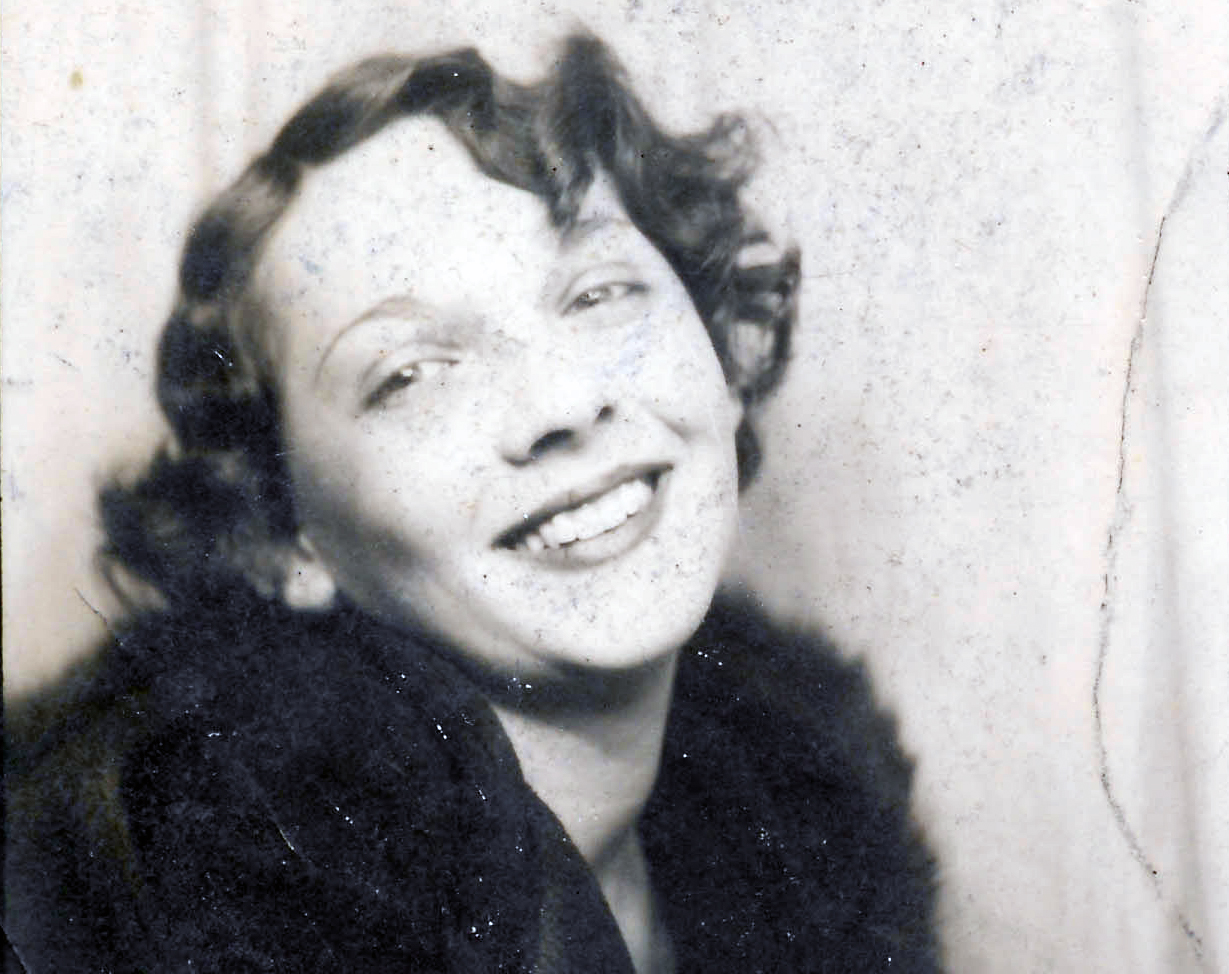Soren A. Gauger
This week we’re very excited to present three fiction pieces from Canadian writer Soren A. Gauger. Read Monday’s story here, and Friday’s here.
Gene Howard was fifty years old and hardly even gray in the temples, but he suffered from a nervous disorder that the doctors were at a loss to pin down. He woke up every night with his body in a state of paralysis or mortification, totally numb. For the first week or ten days the sudden affliction in the pitch black silence had made him scream, waking his wife, forty-three years of age, at all sorts of irregular hours. But after this initial period he would wake up, recognize that it was happening once again, and then simply lie there prone, waiting for the sensation to return to his limbs, and thinking, almost invariably, about the possible significance of his own death.
These nocturnal meditations were, as the saying goes, taking their toll on Gene Howard’s general mental health.
But the doctors, as we have mentioned, were powerless. Once a spectrum of sleeping positions had been tried and rejected, various medicines had been swallowed for the unobstructed flow of blood, and to harmonize the various other processes of the body in a state of rest, then the doctors began to take Gene Howard for a liar. The inconstancy of man—even an upright and celebrated one, and a lawyer such as Howard—was conceivable; the inconstancy of modern medicine was not. Eventually Howard became flustered and irate at the doctors’ stares that seemed to look right through him, and into some reality of mathematical certainty, at the way they liked to narrow their eyes at him as if to say: Come, come now, I know what your game is.
And when he became irate, they took him, moreover, for a hysteric.
So he was utterly alone with this malady of his, as he was alone professionally, now that this Ginley vs. McQuade case seemed quite decidedly endless. It was entering its third year, a period so long that the prosecution (McQuade) had started to morally identify the defense attorney (Howard) with his deceased client (Ginley). McQuade had no one else to be wagging his stubby little finger at, and thus Gene had come to represent his client in the most literal sense of the word.
For three years the central and unwavering objection forwarded by McQuade and his attorney, Clive Grab, had been that Howard’s late client, Mr. Leroy Ginley, had approached the matter of his own suicide with a (quote) “despicable wantonness,” or alternately a “flippant disregard for the life he was abandoning,” thereby making (again quote) a “vulgar spectacle” out of whatever values Mr. McQuade “held dear”—including, but in no way limited to, his “affectionate relations with the aforesaid Mr. Ginley.”
Relations between the two men had been, to adopt McQuade’s pithy turn of phrase, “familiar, but not intimate”; they had smoked together, dined in each other’s company, and exchanged guarded confidences that never “provoked awkwardness or embarrassment in one or the other.” They had always parted ways when decorum seemed to suggest it was fitting. All in all, in McQuade’s view their set-up had unequivocally contributed to a general sensation that it was a “life worth living,” and his periodic meetings with Ginley invariably qualified as “something to look forward to.”
Taking all of the above into consideration, he could not have but seen Ginley’s rash action as a “flagrant exaggeration of circumstances”; if there was indeed a “darker side” to his friend and colleague at the sawmill’s daily lot, he would have estimated their meetings to be, at the very least, a form of compensation, in other words, cause to make the other man “reflect with solemnity upon what it ultimately might mean to take his own life.”
Thus began an entirely unprecedented lawsuit against a dead man, a suit which, owing to just this all-apparent lack of ethical and practical precedence, had proven utterly unresolvable within the current state of the legal system, which, as it happened, preferred to hem and haw over particulars than to mete out blows with a legal hammer and sully its hands with the grime of ethical complexities.
Over his recess meal at the law court restaurant, Gene Howard marveled at how insipid even top-dollar cuisine could taste if consumed regularly. The dreary and uncomfortable aspects of life, he grimly mused, had a habit of becoming more and more tolerable, whereas the luxuries, the so-called “simple pleasures,” began to stick in your throat. There was a premonition of death in this as well, he thought. The earthly garden of pleasures revealed itself irrefutably—and perhaps irrevocably—to be a shabby mirage, even while the reality behind it, the black abyss, could only be dimly and, let us say, ominously sensed. Gene bent down over his plate and took to his meal with redoubled energy.
Gene Howard had never met Leroy Ginley in the flesh, but by now he had seen dozens upon dozens of photographs (on vacation in Tunisia; relaxing in the back yard, hat pulled down over his eyes, a cola on his knee; under the hood of his automobile, his nose streaked in oil; and the only surviving picture that captured him with McQuade, a line-up of sawmill employees in identical white-and-gray striped shirts) and hand-drawn sketches by court officers following descriptions more or less faithfully. Trying to understand the man’s motivations, he had found himself animating the line drawings in his head, making the lips move and the eyes blink. And when this wasn’t enough, when he still couldn’t fathom why this unassuming man had been allegedly grinning when, according to eyewitnesses’ reports, he had shot himself three times in the chest in the sawmill staff room, he began to imagine Ginley talking to him.
Gene Howard enters a clean, but low-income drinking establishment and sits down at a table, on the chair across from Leroy Ginley. Leroy is not a man who is accustomed to being scrutinized – he feels uncomfortable with Gene’s lavish attentions, knowing that Gene has studied his most intimate details causes him to fidget.
This is a real pleasure, Leroy, says Gene.
A pause.
I can’t tell you how seldom I have a chance just to drink like this, without it being a pretext for impressing someone. How seldom I sit across from another man with just the intention of talking, of just honestly trying to get to know another person.
Leroy nods, but Gene has the odd feeling that Leroy is somehow distracted, and is in fact nodding to some other question he has heard at the back of his head.
Howard watches Leroy pick up his glass and hold it up to his mustache—he flinches at the coldness in his throat, as if he wasn’t expecting it. Gene is making mental notes of all these things.
Though asking questions has been his life’s occupation, Gene is suddenly aware he doesn’t know where to start with this Leroy. How to frame things to get the answer he needs.
An old country song is playing from some unseen place: Your Lovin’ Arms Can’t Reach Me in My Grave.
So he begins by explaining his own position instead. He already knows so much about Leroy, and Leroy so precious little about him. He tells Leroy about his attacks of paralysis. And about another peculiar habit he’s noticed he has acquired lately: a kind of disconnection, or rather disassociation from the body. When he wants to go somewhere, he whispers a command or an address in his mind—as if to a coach-driver in the front seat—and then proceeds to disengage himself from the motions of his body. His mind curls up, as it were, into its shell and spares itself the reality. Did Leroy know the sensation?
Leroy gives a distracted nod.
I was just asking, continues Howard, feeling a bit hot all over his body, loosening his collar, because I have thought about you a great deal over the past three years—at first only professionally, back when it was still a painful thing to think about you. But over these three years I have begun thinking about you more and more in terms of my own, intimate life. I have been trying to reconcile your life, or what I know of it, with some problems that are very close to me at the moment. I mean this paralysis that wakes me in the dead of night. I mean the way that time seems to circle around and come back onto itself, spinning a great meaningless noose . . . I mean the growing conviction that the ethics I dig up in the courtroom are increasingly precarious, that they outright contradict one another, or become more and more incomprehensible with regard to the individual’s right to behave toward himself in a way that society would never allow him to behave toward others. The sense that if in fact there is no accountability toward oneself—and for oneself—it might just be absurd to speak about accountability in any sense. Worst of all, the same questions keep endlessly recurring and, quite frankly, now that I am in so deep, in the very thick of things, I see no possible end to all of this.
Gene Howard paused, waiting for any response at all from Leroy. But this time there was not even the distracted nod.
And maybe you think of me, sometimes?
Soren A. Gauger is a Canadian writer and translator who has lived for over a decade in Krakow, Poland. He has published two books of short fiction, Hymns to Millionaires (Twisted Spoon Press) and Quatre Regards sur l’Enfant Jesus (Ravenna Press), and translations of Polish writers, Jerzy Ficowski, Bruno Jasienski and Wojciech Jagielski. His essays, stories, poems, and translations have appeared in journals in Europe and North America, including the Chicago Review, The Southern Review, Capilano Review, Contrary, Asymptote, Cossack, American Book Review, and Words Without Borders. His first novel, Neither/Nor, will be published in October in Polish by Ha!Art Publishers.


